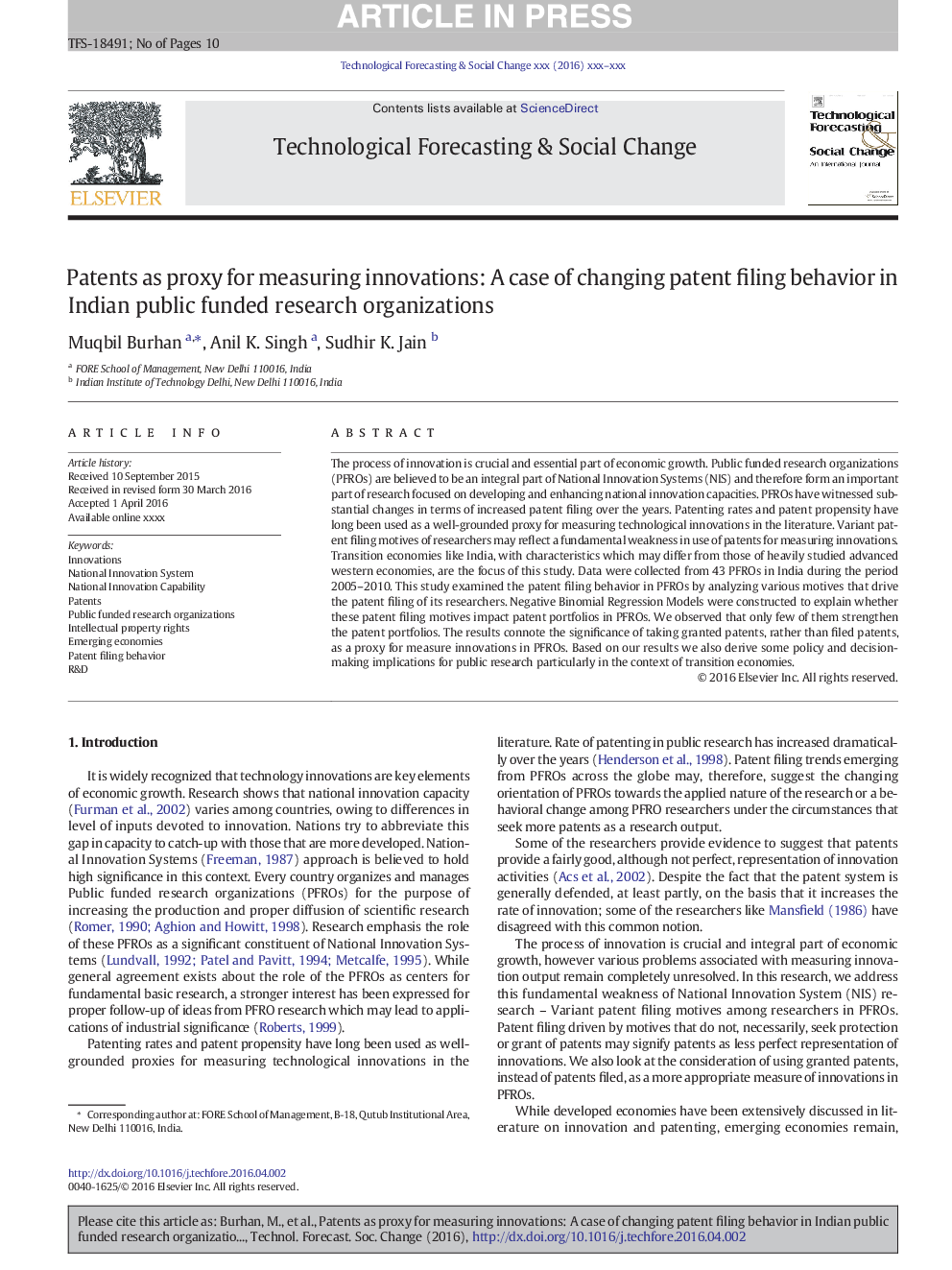ترجمه فارسی عنوان مقاله
اختراعات به عنوان پروکسی برای اندازه گیری نوآوری: مورد تغییر رفتار ثبت اختراع در سازمان های تحقیقاتی بودجه عمومی هند
عنوان انگلیسی
Patents as proxy for measuring innovations: A case of changing patent filing behavior in Indian public funded research organizations
| کد مقاله | سال انتشار | تعداد صفحات مقاله انگلیسی |
|---|---|---|
| 113369 | 2017 | 10 صفحه PDF |
منبع

Publisher : Elsevier - Science Direct (الزویر - ساینس دایرکت)
Journal : Technological Forecasting and Social Change, Volume 123, October 2017, Pages 181-190
ترجمه کلمات کلیدی
نوآوری ها، سیستم نوآوری ملی، قابلیت نوآوری ملی، اختراعات، سازمان های تحقیقاتی دولتی، حقوق مالکیت معنوی، اقتصادهای نوظهور، رفتار ثبت اختراع، تحقیق و توسعه،
کلمات کلیدی انگلیسی
Innovations; National Innovation System; National Innovation Capability; Patents; Public funded research organizations; Intellectual property rights; Emerging economies; Patent filing behavior; R&D;

